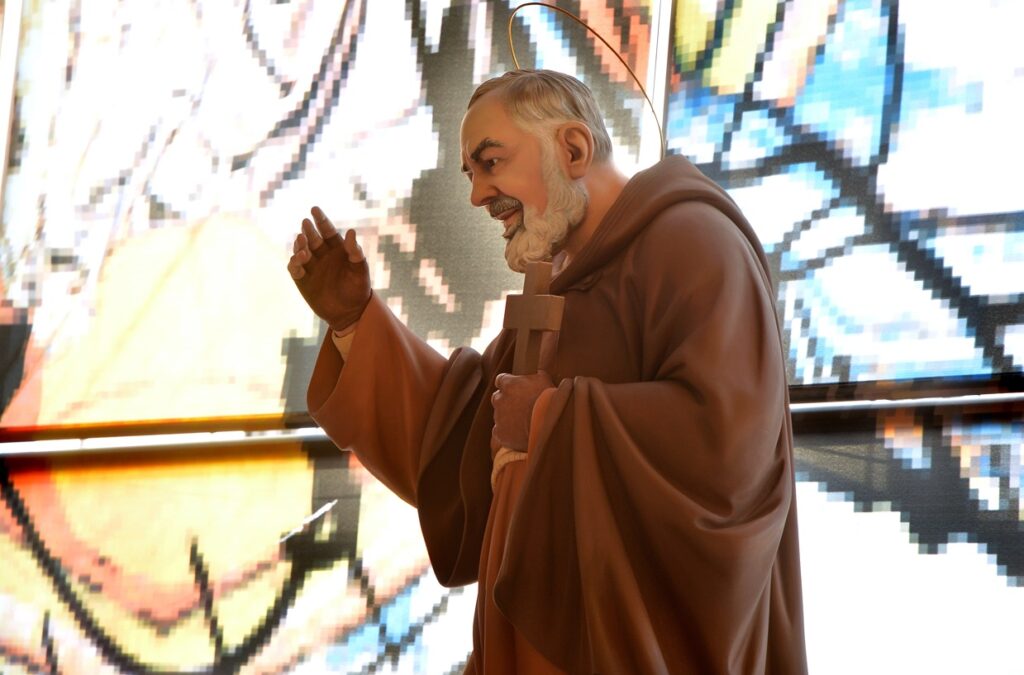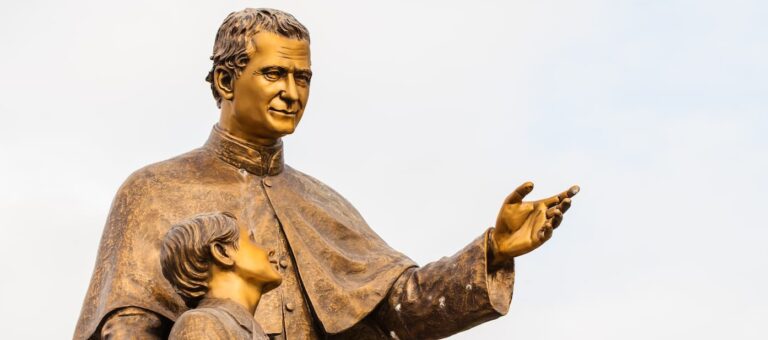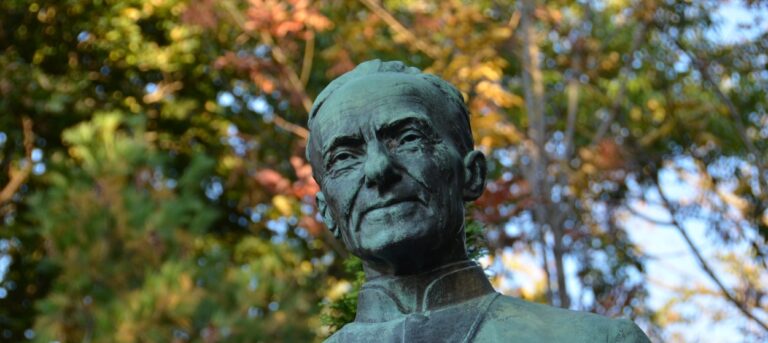
BLESSED ARE THE AFFLICTED

September 23 is the feast day of Italian Capuchin Franciscan St. Pius of Pietrelcina (1887-1968). Canonized by St. John Paul II on June 16, 2002, he is popularly known as Padre Pio.
St. Padre Pio is reported to have had a vision of Jesus. After this apparition, he developed stigmata – physical manifestations of the wounds of Christ on his own body. Thousands of people flocked to Padre Pio to be with this holy man, witness his stigmata, receive counselling and have him hear their confessions. People easily recognized the holiness of a man who bore the wounds of Christ and sought to be in the presence of that holiness. People were certain they were encountering presence of Christ with this man on whom they could easily observe the wounds that connected him to the suffering Lord.
While others sought the presence of Jesus in the physical manifestations of stigmata, Padre Pio’s saintly humility called us to seek Christ in all those who were afflicted with suffering. St. Pio noted that he saw Jesus in all the sick and suffering. He urged the foundation of a hospital to serve such people in their sacred afflictions.
I wonder how our world would change if we connected the sufferings of Christ to the more invisible “stigmata” of people who suffer. Would this transform our attitudes, to see the holy honour of serving and loving people as the presence of the suffering Christ?
In this understanding, we might be able to see in those who live with diseases/injuries of the mind and brain a deep connection to the wounds of the crown of thorns. We could also embrace the afflictions of the heart as manifestations of the pierced heart of Christ: people who live with physical heart disease, or who know the devastating heartache of the loss of loved ones, or even intimate betrayals and hurts. We may even be able to see, in the arthritic hands of loved ones, a representation of Christ’s wounded hands. We could even see Christ’s wounded feet in the diseased feet of homeless persons who are in dire need of foot care. There are many such examples that can be offered for consideration.
The central point of this offering is that, while we can flock to those who have saintly physical manifestations of Christ’s wounds in order to be in the presence of holiness, we can also seek out Christ by recognizing the invisible stigmata-bearers we encounter each day. Indeed, it is St. Pio direction – to look to those who are afflicted if we want to encounter the presence of Christ – that is a powerful witness to his saintly disposition.
All of this is not meant to glorify suffering, which can be a temptation in our Catholic tradition. I have some brothers and sisters in faith who sought suffering or even offered advice to the suffering that caused more harm than healing. Our tradition teaches us that suffering in life is unavoidable and redemptive. The redemptive nature of suffering lies in the constant presence of God’s grace to fill us and lead us to new realizations and healing. God does not will our suffering in any way; rather, God remains a constant source of strength as we move through and emerge from the times that threaten to destroy us.
Saint Padre Pio reminds us that Christ’s stigmata are seen not only in the observable wounds on saintly bodies, but also in the holy plight of all those who suffer in our world. We are called to find Christ in the afflicted, and to be a source of earthly grace, support and holiness so sorely needed.
Michael Way Skinner is a retired Coordinator of Religion, Family Life and Equity
with the York Catholic District School Board. He was a contributing author to World Religions: A Canadian Catholic Perspective, and co-authored There Must be a Pony in Here Somewhere (Novalis, 2020) with his wife, Christine Way Skinner. Michael is a public speaker and award-winning educator who is deeply committed to faith as a source for inclusion and justice.



Thank you, Michael Way Skinner, for the insights you’ve presented in your devotional, “Blessed Are the Afflicted.” I have a daughter, who suffers physically, but also, I believe mentally and spiritually. I have known of St. Padre Pio for some time and I have prayed Novenas over the years for his intercession in particularly troublesome, or “impossible,” situations. Your statement, “Padre Pio’s saintly humility called us to seek Christ in all those who were afflicted with suffering,” has given me a new slant on prayer for my daughter, J. B.. Thank you for sharing your discernment.